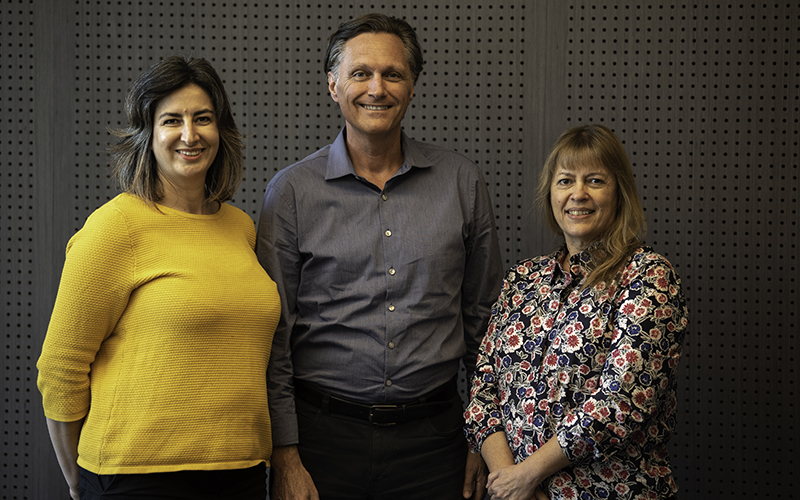Search
Showing results for "Au"
Research
Difficulties in developmental follow-up of preterm neonates in a randomised-controlled trialProbiotics may be neuroprotective for preterm neonates due to their anti-inflammatory effects and ability to facilitate nutrition. AIM: To assess long-term effects of early probiotic supplementation on neuropsychological development in preterm infants

News & Events
Community rallies to embrace youth mental healthAustralia’s first comprehensive research centre focused on mental health from birth to 25 years has been launched today in Perth.
Research
Partial amelioration of a chronic cigarette-smoke-induced phenotype in mice by switching to electronic cigarettesElectronic cigarettes ("e-cigarettes") are often marketed as smoking cessation tools and are used by smokers to reduce/quit cigarette smoking. The objective of this study was to assess the health effects of switching to e-cigarettes after long-term smoking in a mouse model and compare these effects with continued smoking, or quitting entirely.
Research
Physiological responses to exercise in survivors of preterm birth: a meta-analysisSurvivors of preterm birth (<37 weeks' gestation) have low peak oxygen uptake, a global measure of aerobic fitness and an established predictor of increased morbidity and mortality. However, little is known about other cardiopulmonary outcome measures in this population. We addressed the hypothesis that preterm birth is associated with abnormal respiratory, cardiovascular and metabolic responses to exercise, as assessed by cardiopulmonary exercise testing, via a systematic review and meta-analysis.
Research
“Society really does not like people with psychosis”: A thematic analysis of the stigma and self-stigma experiences of young people at-risk for psychosisStigma and self-stigma reduce self-esteem and increase hopelessness and suicidality. While psychotic disorders are widely recognized as the most stigmatizing of all mental health disorders, there is a dearth of research investigating how stigma and self-stigma are experienced by young people at ultra-high risk (UHR) for psychosis.
Research
How can modeling responsibly inform decision-making in malaria?When models are used to inform decision-making, both their strengths and limitations must be considered. Using malaria as an example, we explain how and why models are limited and offer guidance for ensuring a model is well-suited for its intended purpose.
Research
A newborn's perspective on immune responses to foodIn this review, we will highlight infants' immune responses to food, emphasizing the unique aspects of early-life immunity and the critical role of breast milk as a food dedicated to infants. Infants are susceptible to inflammatory responses rather than immune tolerance at the mucosal and skin barriers, necessitating strategies to promote oral tolerance that consider this susceptibility.
Research
Implementation of DNA Methylation Array Profiling in Pediatric Central Nervous System Tumors: The AIM BRAIN Project: An Australian and New Zealand Children's Haematology/Oncology Group StudyDNA methylation array profiling for classifying pediatric central nervous system (CNS) tumors is a valuable adjunct to histopathology. However, unbiased prospective and interlaboratory validation studies have been lacking. The AIM BRAIN diagnostic trial involving 11 pediatric cancer centers in Australia and New Zealand.
Research
Lived experiences of the diagnostic assessment process for fetal alcohol spectrum disorder: A systematic review of qualitative evidenceEarly assessment and diagnosis of FASD are crucial in providing therapeutic interventions that aim to enhance meaningful participation and quality of life for individuals and their families, while reducing psychosocial difficulties that may arise during adolescence and adulthood. Individuals with lived experience of FASD have expertise based on their own lives and family needs. Their insights into the assessment and diagnostic process are valuable for improving service delivery and informing the provision of meaningful, person- and family-centered care. To date, reviews have focused broadly on the experiences of living with FASD.
Research
Objectively measured infant and toddler screen time: Findings from a prospective studyScreen time guidelines recommend no screens under two years due to the potential negative impacts on development. While current reports suggest many children exceed this, research relies on parent reports of their children's screen exposure. We objectively assess screen exposure during the first two years and how it differs by maternal education and gender.
